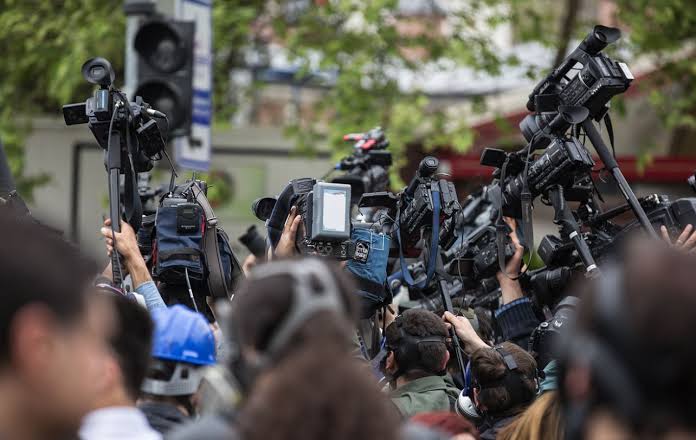NAIROBI, Kenya, Nov 2- As we mark the November 2 International Day to End Impunity Against Journalists (IDEI) with the theme “Keep Truth Alive”, we must remind ourselves of the small teething problems in the media sector, including the rising trend in press freedom violations witnessed in 2020 up to 2021.
Multiple reports released by various bodies point to industry and profession in dire need, largely because of the business operating environment, predatory behavior by big technology companies, changes in revenue flow, shrinking democratic space, and the ravages of COVID 19.
The theme shines the spotlight on local journalists working on corruption and politics stories in non-conflict situations, who represented 93 percent of journalists who have died in the past decade.
That Kenya’s press freedom situation while on paper is impressive and shows an industry in rapid growth- over 200 radio stations, nearly 130 TV stations, 1000 blogs, and 100 print publications; the situation of journalists is moving in the opposite direction-the 2021 World Press Freedom Index shows the is country’s ratings are dropping.
We note that the already bad working conditions and safety situation of journalists in Kenya have been made worse by the effects of the COVID-19 pandemic, as seen in mass sackings, non-payment of salaries and wages, and harassment of journalists.
It’s also the period that with the 2022 General Election is in sight, a lot of pressure is anticipated to be heaped on the media, players demanding both accountability and responsible work, but more on wanting favorable coverage amidst increasing cases of misinformation and brand destruction.
Journalists and media practitioners are exposed to the daily risks of infection as they seek and report on events and facts about the COVID-19 while cases of mental stress on the team have been reported to be having a toll on their health.
A study by the Aga Khan University Graduate School of Media Communications jointly with the DW Akademie released in March 2022 makes a number of critical observations including that while the Kenyan media has grown tremendously and has the managerial capacity to deal with the global challenges facing the industry, journalists in the country are discredited, assaulted, harassed or intimidated in the line of work, the country still maintains laws that are a hindrance to press freedom and access to information.
The report notes that while the growth of the economy has supported the development of a very vibrant media sector, unfortunately, the high-level competition in the market for audiences has resulted in repeated downsizing and cost-cutting in many media houses over the years, while media ownership is highly concentrated – additionally, the shrinking revenue for media houses and dependency on a few influential advertisers including the government compromises professionalism in the news production circle- especially from the economic and political establishments. Suffice to note that the advertising revenue from where the media entirely depends on suffering from audience fragmentation occasioned by growth in social media, international and native digital media platforms that are poorly regulated by the existing copyright laws.
The report notes that Kenyan media produces highly professional content, as journalists in the country are highly qualified and educated.
Legacy media to deal with the emerging trends are slowly becoming information curators instead of news providers and some are diversifying into non-news businesses such as courier, gaming, and advertising agencies.
A number are trying news on-demand investments, monetizing their digital content, and above all trying joint productions to minimize operating costs.
The Media Council of Kenya with support from DW Akademie in their study early this year also established that among other factors that threaten media the sustainability and viability in Kenya include a legal regime that has been put in place are, for instance, the hefty fines of up to approximately USD 200,000 for individual media houses and approximately USD 5,000 for individual journalists respectively, that are very difficult to honour through the Kenya Information Amendment Act.
In trying to avoid falling victim to such severe penalties, media institutions and individual journalists have been forced to seriously self-censor or completely drop stories deemed politically sensitive altogether.
Constant threats of lawsuits hanging over several media houses daily with media houses being slapped huge awards in defamation suits- a case where a petitioner was awarded Ksh 20 million, which, a lawyer laments that “the law’s diversion from compensating aggrieved parties to enriching them.
Challenges faced by local/county-based journalists differ many times with those based in urban centres where a majority of media outlets are based, which many times frustrates industry approach to issues including the rivalry between journalists working for major media outlets against freelancers and those working for community or locally based outlets.
In addition, there is a worrying trend where journalists who have been victims of violations resort to withdrawal or abandon the cases without professional guidance on the issue of conflict resolution.
We must work to make the environment conducive for free, viable, and independent media in Kenya through considering such things as tax rebates on media equipment, regulating the cost of content dissemination through the registered content couriers, supporting media to protect their content against theft, the establishment of a media fund and enhance professional self-regulation including the creation of public editors in media outlets.
Hopefully, the recently appointed task force of media policy will address some of these challenges and provide some stepping ground to improve the situation.
Victor Bwire is the Director Media Training and Development at the Media Council of Kenya. victor@mediacouncil.or.ke
Want to send us a story? Contact Shahidi News Tel: +254115512797 (Mobile & WhatsApp)


